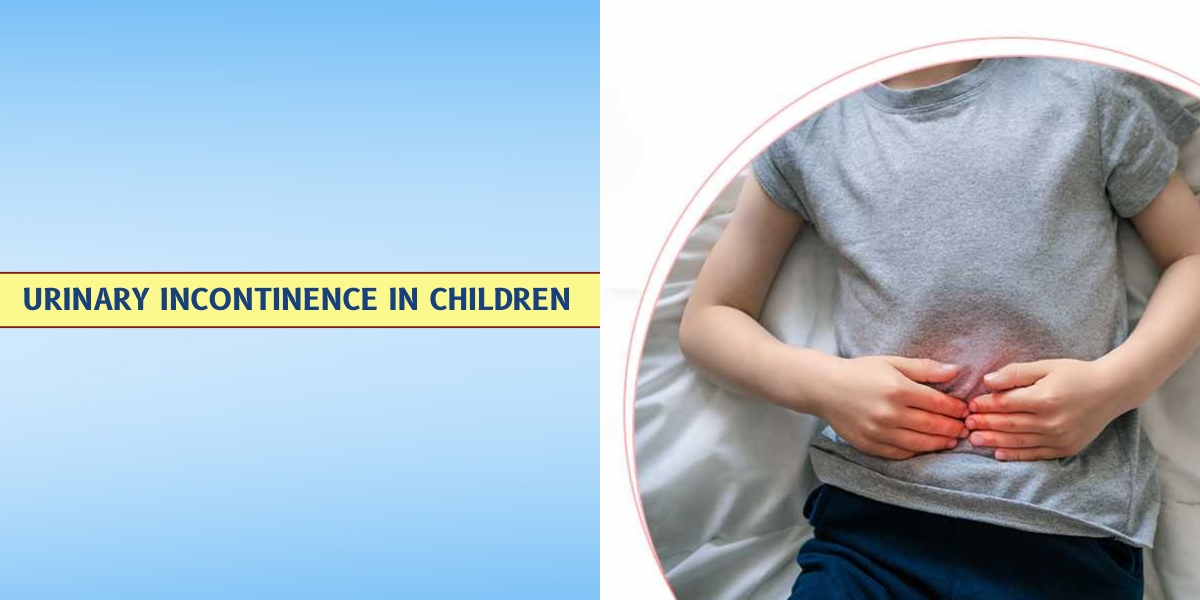Urinary incontinence in children, also known as enuresis, can be a challenging issue for both the child and their parents. It refers to the involuntary leakage of urine, and it can occur during the day (daytime incontinence) or at night (nocturnal enuresis, commonly known as bedwetting). Understanding the causes can help in managing and treating this condition effectively.
Normal Development
First, it’s essential to understand that gaining full bladder control is a developmental milestone that children reach at different ages. Most children achieve daytime control by the age of four and nighttime control by the age of five or six. However, it’s perfectly normal for some kids to take a bit longer. If a child has never had dry nights or days, it might simply be a case of slower development.
Common Causes of Urinary Incontinence
- Genetics – If either parent had issues with bedwetting as children, there’s a higher chance their child might also experience it. This suggests a genetic component to urinary incontinence.
- Deep Sleep – Some children are very deep sleepers and do not wake up when their bladder is full. Their brain doesn’t respond to the signals sent by the bladder, leading to bedwetting.
- Small Bladder Capacity – Some children have a smaller functional bladder capacity, meaning their bladder cannot hold as much urine as others. This can lead to more frequent urination and accidents.
- Constipation: An often-overlooked cause, chronic constipation can put pressure on the bladder, reducing its capacity and control. The full rectum can press against the bladder, leading to accidents.
- Urinary Tract Infections (UTIs) – UTIs can cause irritation and inflammation in the bladder, leading to sudden urges to urinate and potential incontinence. Symptoms of a UTI include a burning sensation during urination, frequent urination, and abdominal pain.
- Diabetes – In some cases, diabetes can lead to increased thirst and urination, which might result in incontinence. If a child is also losing weight, seems excessively tired, or is constantly thirsty, it’s important to get them checked for diabetes.
- Stress and Anxiety – Emotional factors like stress, anxiety, or significant changes in a child’s life (such as moving to a new home, starting a new school, or the arrival of a new sibling) can contribute to incontinence. Children might not express their feelings openly, but their bodies can respond to stress in various ways, including bladder control issues.
- Attention Deficit Hyperactivity Disorder (ADHD) – Children with ADHD may experience urinary incontinence more frequently. The connection isn’t entirely clear, but it might be related to the impulsivity and inattentiveness associated with ADHD.
Managing and Treating Urinary Incontinence
Understanding the underlying cause is crucial in addressing urinary incontinence. Here are some strategies that might help:
- Behavioral Techniques – Encourage regular bathroom breaks, especially before bedtime. Creating a bathroom schedule can help train the bladder.
- Limit Fluid Intake – Reduce the amount of fluids a child consumes in the evening, but ensure they drink enough during the day.
- Positive Reinforcement – Reward systems for dry nights or days can motivate children. Avoid punishment, as it can increase stress and worsen the problem.
- Addressing Constipation – Ensure the child has a fiber-rich diet and stays hydrated to prevent constipation. Sometimes, a gentle laxative might be needed under a doctor’s supervision.
- Medical Intervention – If an infection or another medical condition is causing the incontinence, treating that condition should resolve the issue. Medications are available for severe cases of bedwetting.
- Bedwetting Alarms – These alarms can help children wake up when they start to wet the bed, training their brain to respond to bladder signals.
When to Seek Help
It’s important to consult a healthcare provider if urinary incontinence continues beyond the typical age range, starts suddenly after the child has been dry, or is accompanied by other symptoms like pain, fever, or unusual thirst. A healthcare provider can help identify any underlying conditions and recommend appropriate treatments.
For more information and consultation Book An Appointment with Dr. Saurabh Tiwari.




